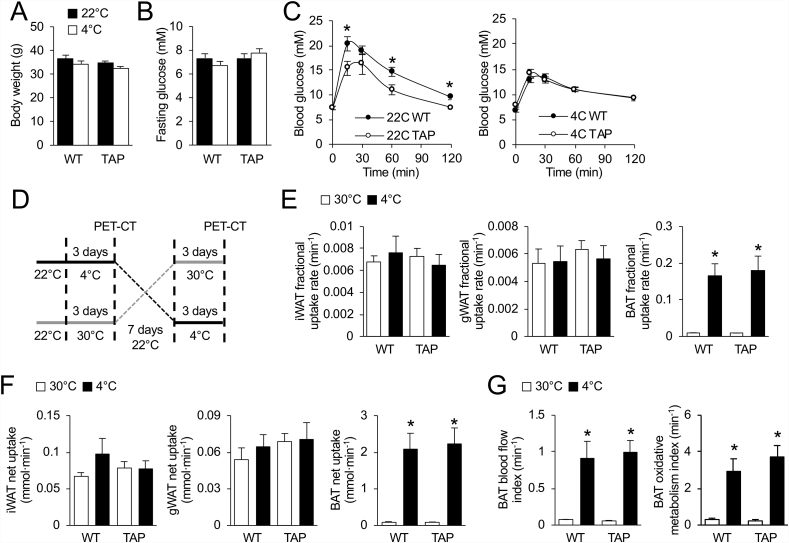Figure 6.
Over-expression of 14-3-3ζ does not enhance the metabolic activity of BAT during cold exposure. (A–C) Wildtype (WT) or transgenic mice over-expressing 14-3-3ζ (TAP) housed at 22 °C or 4 °C did not display differences in body weight (A) or fasting blood glucose (B) before an intraperitoneal glucose tolerance test (C, 2 g/kg) (n = 8 WT and 6 TAP; ∗: p < 0.05). (D) To measure the metabolic activity of iWAT and BAT during prolonged cold exposure, WT and TAP mice were subjected to a randomized crossover design whereby mice were housed at thermoneutrality (30 °C) or 4 °C for 3 days, with 1-week recovery between temperatures, and subjected to dynamic [18F]-FDG and [11C]-acetate-based PET-CT imaging. (E,F) Fractional and net [18F]-FDG uptake were measured in BAT, gWAT, and iWAT from WT and TAP mice at the indicated temperatures (n = 8 WT, 10 TAP; ∗: two-way ANOVA p < 0.05 for difference between 30 °C vs. 4 °C; ∗: two-way ANOVA p < 0.05 for difference between 30). (G) Oxidative activity, as measured by [11C]-acetate metabolism, and blood flow were measured in BAT of WT and TAP mice at the indicated temperatures (n = 8 WT, 10 TAP; ∗: two-way ANOVA p < 0.05 for difference between 30 °C vs. 4 °C). Data are represented as mean ± SEM.

